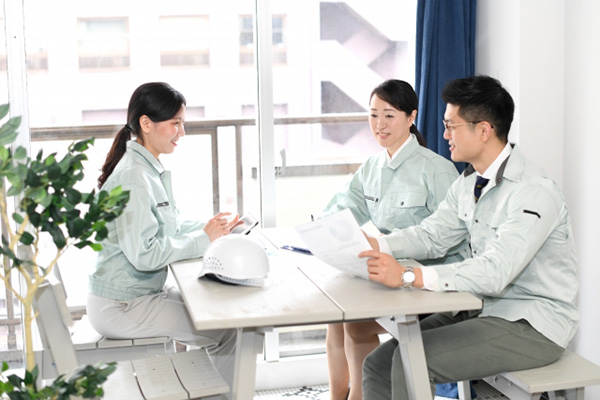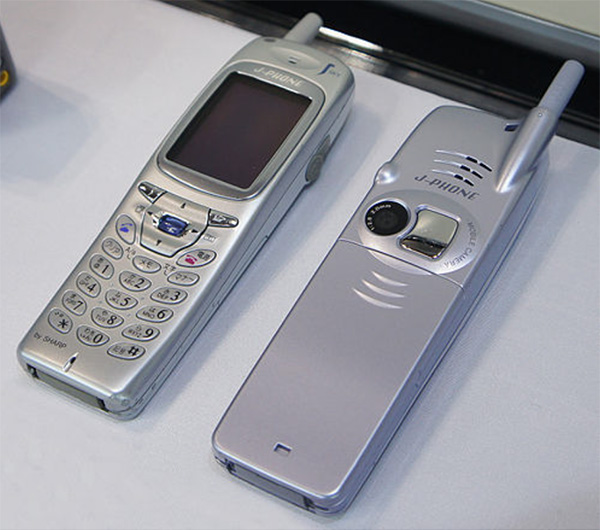Sakura Mentor
How Is Working Life in Japan? - Part 1
Ha Hoang
Updated in September 2021
You probably could image some differences between student life and working life, as well as working in your home country compared to Japan. As a company employee, I want to share with you my own experience. Every company is not the same, but nevertheless I hope you could have some references about working life in Japan.
1. Uniform:
The last time I wore uniforms is when I was in high school and I kind of dislike it because it looked bored. When I came to Japan, with all information I gathered from books, internet and my own internship experience, I believed that in Japanese companies, factory workers wear uniforms while office workers wear suits or business attires. I was surprised that in my company, from executive managers to manual workers (even janitors), everyone wears the same uniform. When I realized the meaning of uniform in company, my thought about it has changed. In a company, no matter what your position is, everyone is equally important and contribute their efforts to the development of company. Wearing uniform is one way to show that quiet contributions are meaningful too.

2. Patents, research papers, and taking part in conferences:
In university, you submit papers in order to publish your new research results (papers are required for students to graduate too). Giving presentation at conferences also have many advantages such as: rehearsal for your actual thesis defense, benefits in publishing your paper, short travel trip…
On the other hand, in company, submitting research papers or giving presentations at conferences are mainly for promoting and advertising business. In order to not leak confidential information, the published content is considered carefully by several managers. Company also encourages employees to join conferences as audience to gather outstanding research results.
Then how about patent? When I was student, I had heard that in company, patents were more important than papers. And now I know it is really true. It is said that patents are assets to companies because it provides a way to keep innovative ideas safe from other users in a long period (about 15-20 years). In my company, we have many meetings to brainstorm ideas for patents, and submit patent proposals frequently. In comparison with a research paper, obtaining a patent right takes longer time (1.5-2 years) and more difficult. If your research paper is rejected, you still can revise and submit to other publishers. But it does not work for patent, once your patent application is rejected, it’s done. You only can start a new one.
3. Cellphone, PC:
I used to think that in work place, to phone someone, people would use telephone (it would be one telephone for each person or a small group). Because that is what I saw in school office and some companies where I did internship. However, in my company, I received a cellphone. Yes, a traditional cellphone with keypad which can be carried anytime. It took me a while to get used to with that phone, it is like going back to time of 10 years ago when smart phone was not popular yet. In my company, the cellphone is only used for work and I can’t take it outside of company. But in my friend case, his company’s cellphone is used for both work and personal. It means he has to carry it all the time (like his own phone) in the case someone from company contacts.

Regarding PC, I also thought that each person would have a desktop computer (similar to lab in university). In fact, everyone got one laptop that people can take it everywhere, including working from home or during business trip. When pandemic happened, Japan government encouraged companies to promote telework. Some men on the way going to work were interviewed and said that their companies only have desktop computers, so they had to commute to office to work, they couldn’t work from home. Hence, it is different from company to company.
4. Flexible work system:
Have you heard about flexible work style in Japan? Usually, companies have fixed working hour such as 8:30 to 17:15 (1h lunch break), or 9:00 to 17:30 (45mins lunch break)… In my company, we use flexible work system. It allows employees can start or finish work freely outside core time hour. Even if you don’t work enough 7h45min for one day, it is not a big problem. Because the working overtime of that month will be deducted for the day you didn’t work enough.
For example: in the case standard working hour is from 9:00 to 17:30 (7h45min/day, 45mins lunch break)
if yesterday, you work from 8:00 to 18:00, you have +1h30 overtime
and today, you work from 8:00 to 16:00, you have -30min overtime
→ during 2 days, your overtime is +1h
With flexible work system, I can avoid rush hour when go to work (able to take a seat on train and bus), and during this pandemic, I feel safer to take public transportation when it is not crowded. Besides, I think this working system is also very beneficial for people having children. There is a married couple working in my office. One person goes to work very late (in order to take their child to school) and finishes work late while the other starts work early and goes home early (to pick up child from school). So both of them are able to work and take care of their child. I hope many companies will apply this flexible working system.







